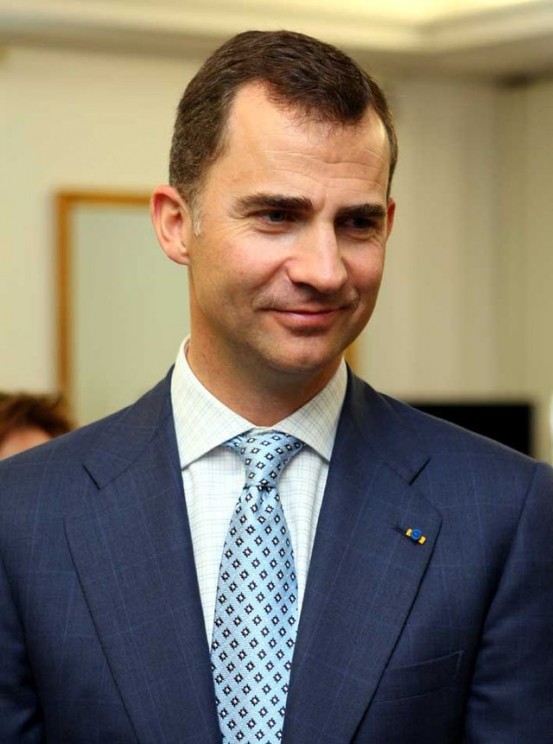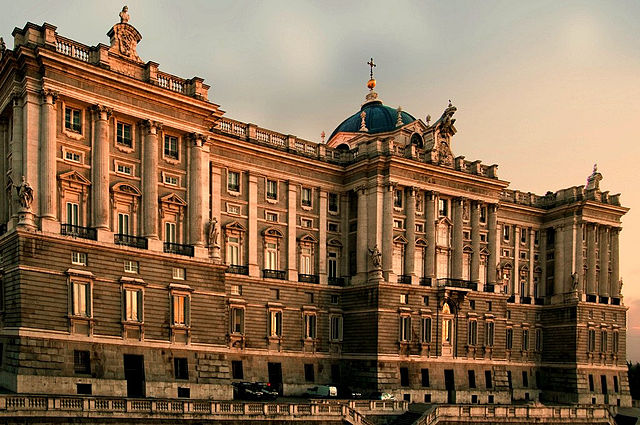By William Chislett
Spain has a new king, following the abdication of King Juan Carlos earlier this month in favour of his son, Felipe VI. The move comes at a time when Spain is emerging from a long period of recession with an unemployment rate of 26%, a tarnished monarchy, a widely discredited political class, and a pro-independence movement in the region of Catalonia. Like his father almost 40 years ago when he succeeded the dictator General Franco as head of state, Felipe VI faces enormous but very different challenges.
Juan Carlos’s grandfather, King Alfonso XIII, went into exile before Spain’s 1936-39 Civil War. General Franco, who won that war, sidestepped Juan Carlos’s liberal and exiled father, Don Juan, and appointed Juan Carlos instead, believing he would maintain his regime as he had been educated in Spain under Franco’s aegis since the age of 10.
Juan Carlos knew that the only way to secure the monarchy was by piloting the transition to democracy. In 1981, when Francoist diehards tried to turn back the clock and staged a military coup, Juan Carlos faced them down and won the day. As a result, he became a hugely popular figure and many people became juancarlistas as opposed to outright monarchists. Under him, Spain joined NATO in 1982, entered the European Community in 1986, and enjoyed the longest period of stability and prosperity in its modern history.
In recent years, however, Juan Carlos and the monarchy as an institution have lost support. The king’s son-in-law, Iñaki Urdangarin, is currently embroiled in an ongoing investigation into alleged financial irregularities and tax evasion involving the misuse of public funds, which has made him persona non grata in the royal family. Urdangarin, who denies any wrongdoing, is expected to stand trial. The king also did not endear himself to his subjects at a time of national crisis by going on an elephant-hunting trip to Botswana in 2012 (for which he later publicly apologised), after saying he was losing sleep thinking about Spain’s whopping youth unemployment rate (55%). And, as part of the establishment blamed for not anticipating the country’s deep crisis, the king was perceived as part of the problem. On a scale of 0 (no confidence) to 10 (a lot of confidence), the monarchy scored 3.72 in April, down from 7.48 in 1995, according to the CIS barometer. Meanwhile, support for the restoration of a republic (established in 1931 and ended in 1939) has been growing.
Juan Carlos had always implied that he would die as king. But in addition to the scandals, his health has deteriorated over the last few years and he has been in and out of hospital for various operations. At 76, he was visibly tired and finding it an increasing strain to keep up with his duties and travel abroad promoting Spanish business.
Juan Carlos’s decision to abdicate will also smooth the path for his son, Felipe. The two main parties, the ruling conservative Popular Party (PP) and the Socialists, hold more than 80% of the seats in parliament between them, and so they were able to ensure parliamentary passage of the legislation required for the handover to Felipe.
The abdication appeared to boost support for the monarchy: almost two-thirds of respondents in a poll said they had a good or very good opinion of Juan Carlos, up from his 41% favourability rating in January, and 77% approved of his son.
The next general election is not scheduled until November 2015, and the results could change the political map substantially. The PP and the Socialists, who have dominated the political scene since 1983, gained less than 50% of the votes between them in last month’s European elections, compared to 73% in the 2011 general election. The Socialists did so poorly that their leader, Alfredo Rubalcaba, resigned. The Socialists, who governed Spain during the key modernisation period of 1983-96 and into the recession in 2009, are in a mess and run the risk of veering into populism in order to win votes.
The Izquierda Plural (Plural Left) coalition and Podemos (We can), a new radical party born out of the 2011 grass roots protest movement of Los Indignados (The Indignant Ones), both did well in the European elections. Podemos came from nowhere to win five seats and 1.2 million votes (8% of the total cast), while L’Esquerra and Los Pueblos, in favour of independence for Catalonia and the Basque Country, won three seats between them. All of these parties want a republic, as do some in the more moderate Socialist party. The king’s abdication was greeted by those who support a republic, with demonstrations calling for a referendum on whether to keep the monarchy.
Spain’s choice is not between a monarchy or a republic, but between a poor democracy or higher quality one. Moreover, changing the form of the state will not resolve the burning issues of high unemployment, a defective education system, the lopsided economic model (excessively based on the real estate sector), the potential division of the nation (fuelled by Catalonia’s push for an illegal referendum on independence this November), a politicised judiciary which operates at a snail’s pace, and corruption. Spain was ranked 40th out of 177 countries in the latest corruption perceptions ranking by the Berlin-based Transparency International, down seven places from the year before on “a scale of 0 (highly corrupt) to 100 (very clean)”. More than 1,500 corruption cases are still under investigation, many of them involving politicians.
When I met Juan Carlos in 1977, he joked about himself. “Why was I crowned in a submarine? Because deep down, I am not so stupid.” Once again, he has shown how true this is by his wise decision to pass on the baton to his son, who has been well educated and is well prepared.
The challenge for Felipe VI is to revitalise the monarchy and show that it still has a role to play in modern Spain. In such a partisan country, the restoration of the republic would be a disaster. Juan Carlos took the first step toward regaining the public’s confidence; now, the entrenched political class needs to clean up its act.
William Chislett is the author of Spain: What Everyone Needs to Know®. He is a journalist who has lived in Madrid since 1986. He covered Spain’s transition to democracy (1975-78) for The Times of London and was later the Mexico correspondent for the Financial Times (1978-84). He writes about Spain for the Elcano Royal Institute, which has published three of his books on the country, and he has a weekly column in the online newspaper, El Imparcial.
Subscribe to the OUPblog via email or RSS.
Subscribe to only politics articles on the OUPblog via email or RSS.
Image credit: “Felipe, Prince of Asturias” by Michał Koziczyński, CC BY-SA 3.0 PL via Wikimedia Commons.
The post Felipe VI, Spain’s new king: viva el rey appeared first on OUPblog.




